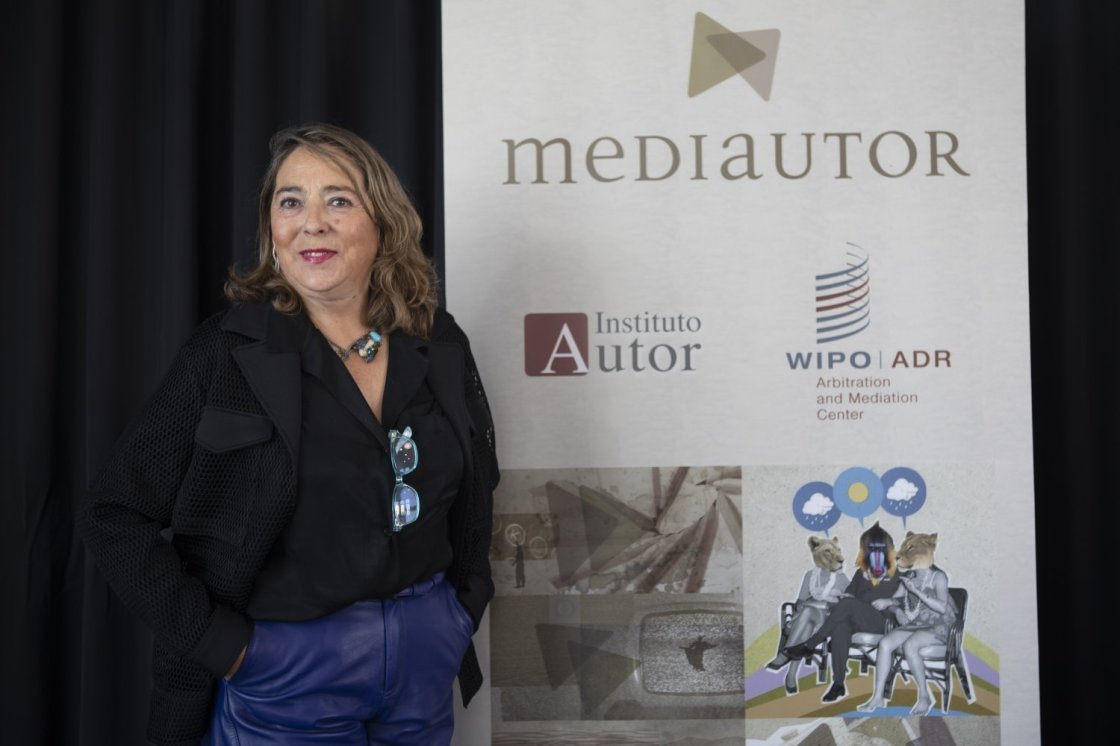
On December 16, 2022, the newspaper "El Economista" published an interview with Marisa Castelo, president of the Instituto Autor, in which she analyzed and explained the Mediautor project, a mediation center specialized in intellectual property and cultural industries, which will mediate in conflicts within these sectors and image-related matters. The project was presented in November 2022 at the Valle – Inclán Hall of the Círculo de Bellas Artes.
Below, we include the complete interview conducted by Xavier Gil Pecharromán.
What are Mediautor's objectives?
It establishes a specialized mediation procedure in intellectual property and cultural industries – as far as we know, it does not exist – in collaboration with the World Intellectual Property Organization (WIPO). Its aim is to help resolve conflicts in the sector of authors, artists, and cultural industries. And not only within the traditional sector, but also any third party that uses intellectual property rights or image rights in any way.
Will mediation be mandatory?
Mediation becomes particularly relevant once the Procedural Efficiency Law is approved, which will impose as a mandatory requirement, prior to filing a lawsuit, attempting to resolve the conflict through an extrajudicial means, with the consequence of cost imposition. If we consider all of this and take into account that it is a fast and much more affordable alternative to judicial proceedings, combined with the stamp of impartiality provided by WIPO, which will appoint mediators and oversee the procedure to eliminate any shadow that the Instituto de Autor may have.
Are there also reputational reasons?
Mediation is confidential and eliminates the reputational risks of court proceedings. Therefore, any matter that is in the public eye, for example, in the case of a photograph used in a campaign by the Ministry of Equality, if mediation had been used, with the infringing party assuming the responsibilities they need to and reaching an agreement, they would not have suffered reputational damage due to this action. In our industry, which is a very small world, when a dispute arises and legal proceedings are initiated, relationships tend to break down, and people don't work together again, which can be avoided through an agreement without the tensions of a judicial litigation.
Are conflicts increasing?
I think what happens is that things were previously overlooked. Nowadays, there are more tools for individuals to assert their rights. Additionally, there is a community directive, the Digital Single Market Directive, which imposes a mandatory review mechanism on old contracts, which was essential.
Will mediation cross borders?
Mediation does not have to be based on law, which facilitates the resolution of international conflicts. A common situation, such as a contract between a Spanish production company and others from France and Colombia, can be resolved through mediations in Spain. We have the list of WIPO mediators in all countries and languages. It doesn't even have to be in Spanish.
What specialization does a mediator have?
There are many mediation chambers where social graduates, psychologists, and human aspects are prioritized to bring parties closer. However, in our case, technical expertise is paramount. Mediators must have knowledge of the subject matter they are dealing with and experience in mediation. We are talking, for example, about international co-productions or audiovisual law. A very common situation is when a person finds a rights infringement and requests compensation that does not comply with the legislation, which states that you can only request what you would receive if authorized. In these cases, it is necessary for a professional to convince them that it is outside the market and that a judge will not grant it.
And we can't forget about technology, right?
It's extremely important. Last May, I attended a mediation event in Geneva and could see that mediation is widely used in Latin America. Representatives from different countries mentioned that since they increased remote.
Fuentes: El Economista (Marisa Castelo García, presidenta del Instituto Autor: “La mediación será un requisito obligatorio, previo a la demanda, y si incumple, habrá condena en costas”), Instituto Autor (El Instituto Autor presenta “MEDIAUTOR – Centro de Mediación especializado en propiedad intelectual e industrias culturales”).